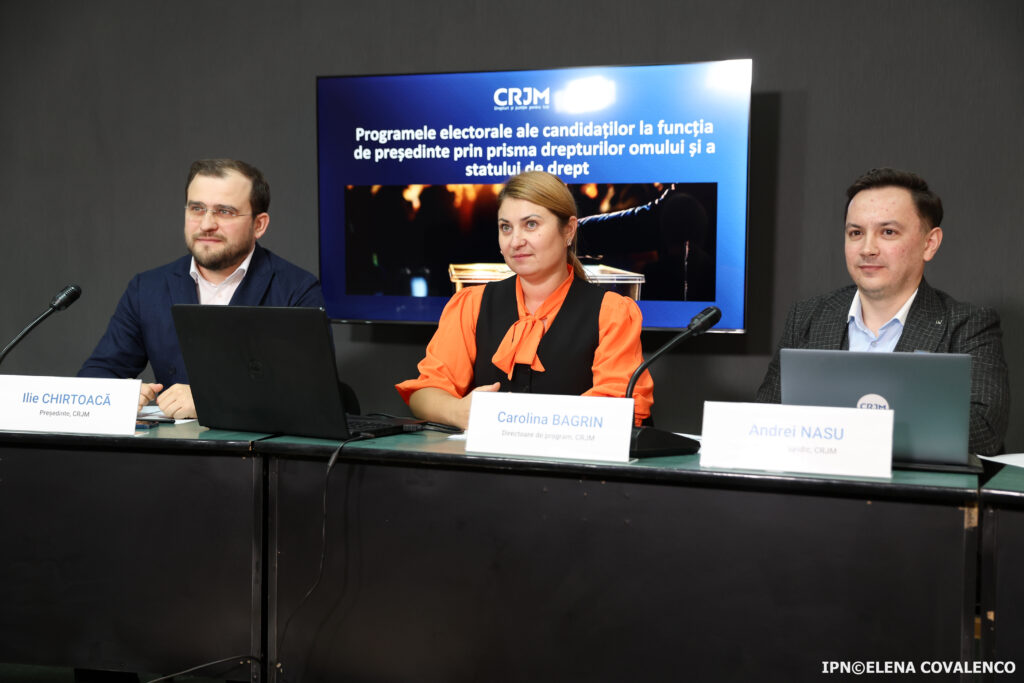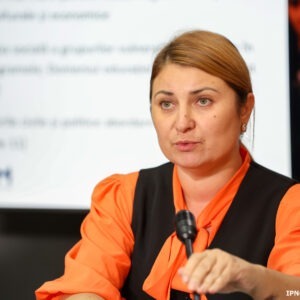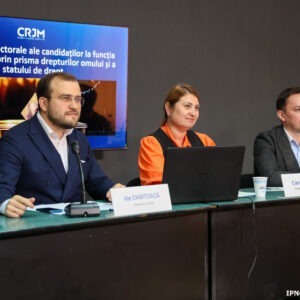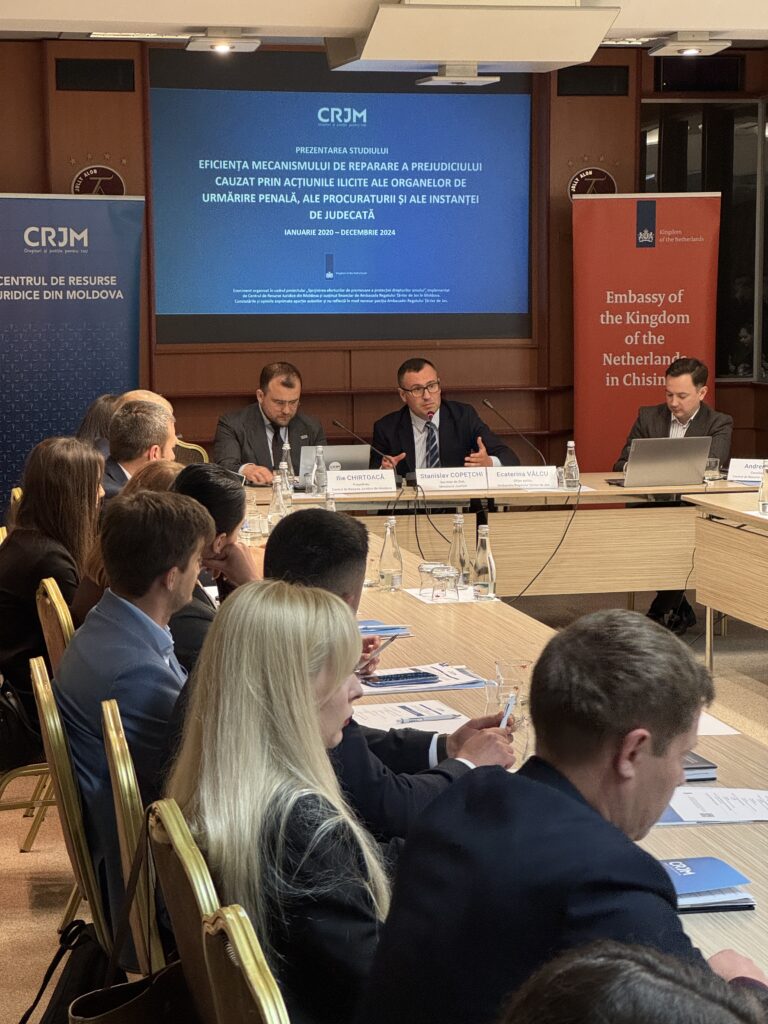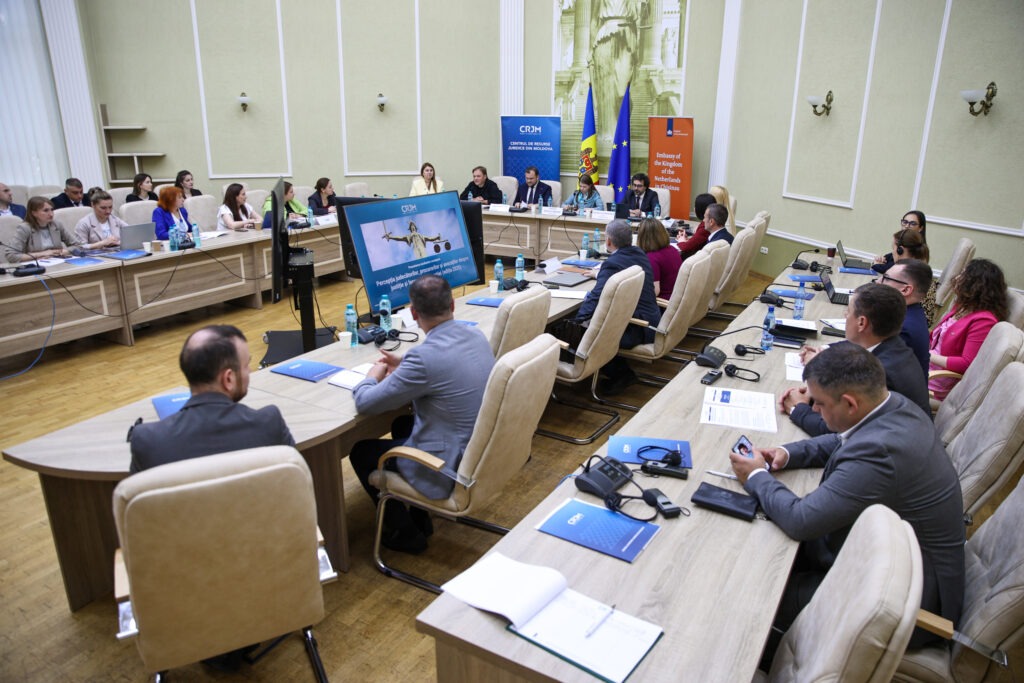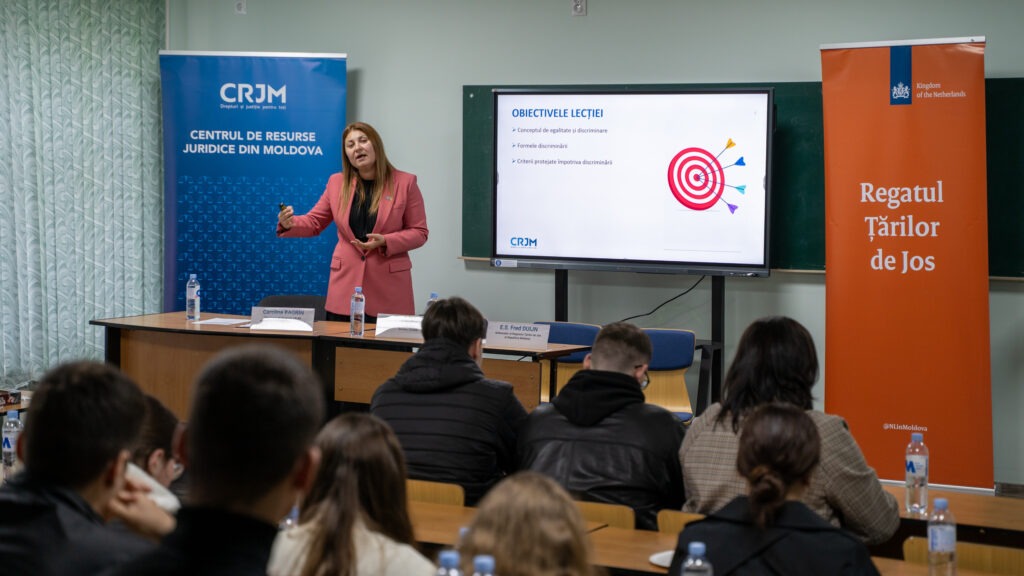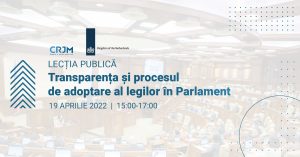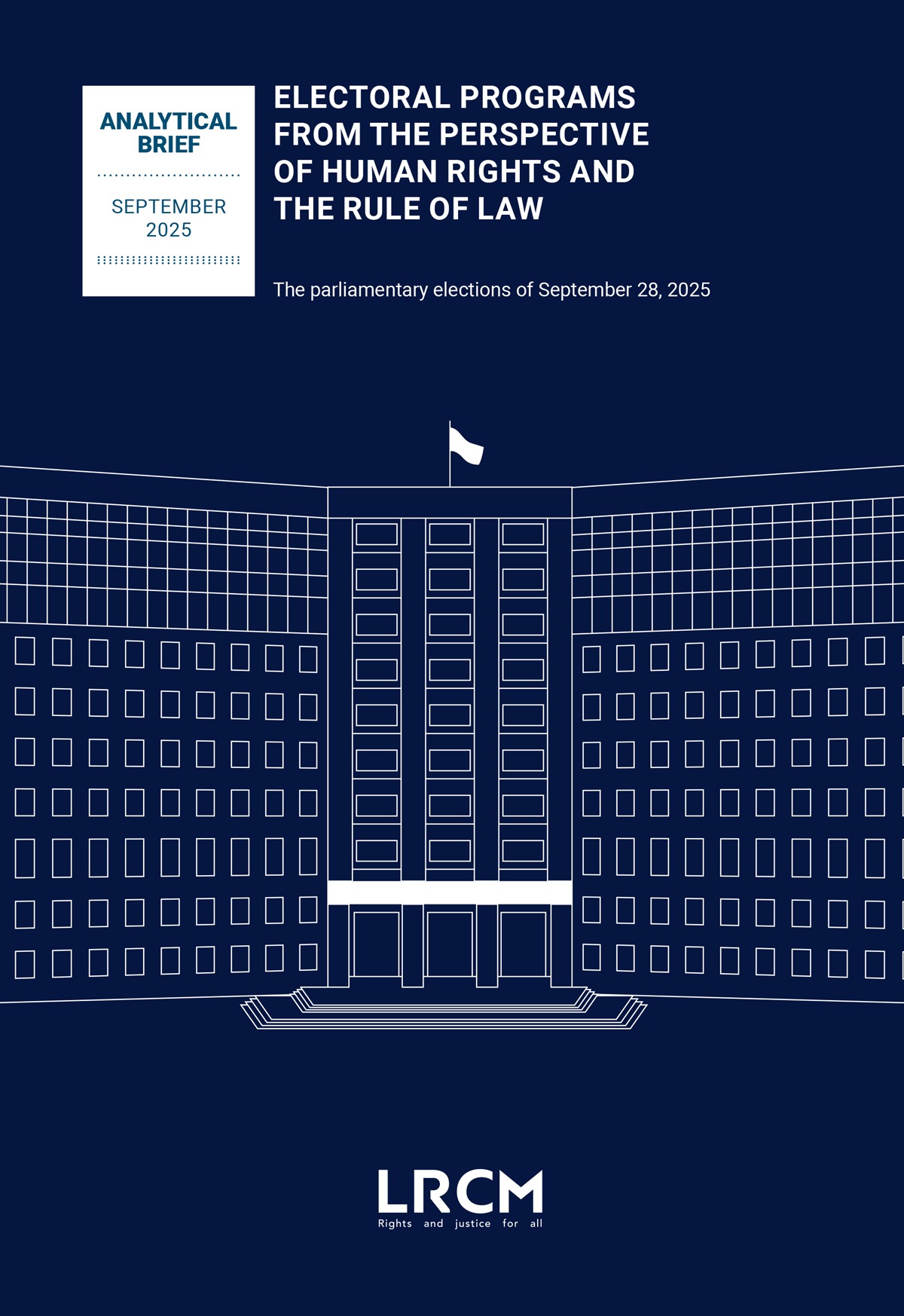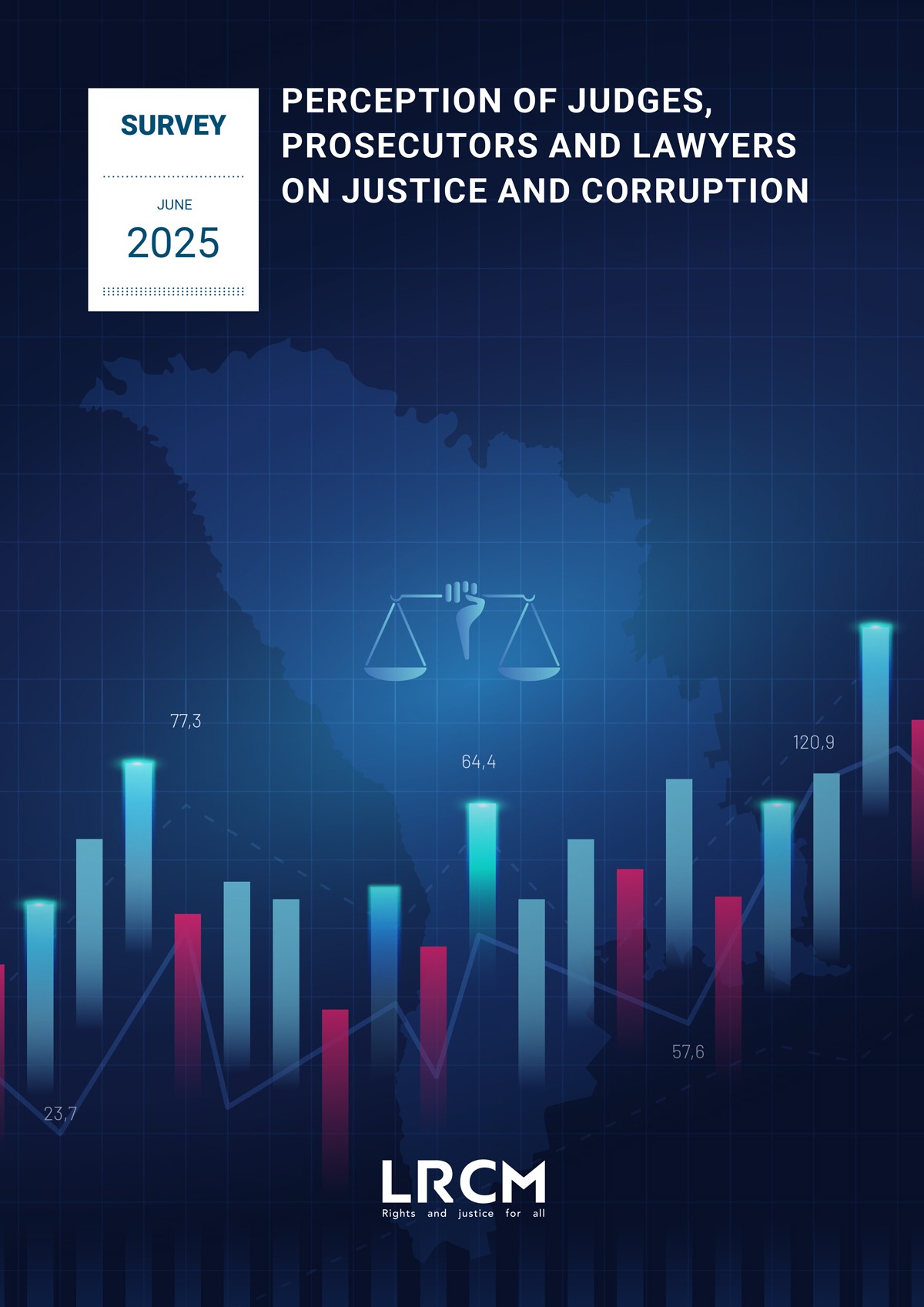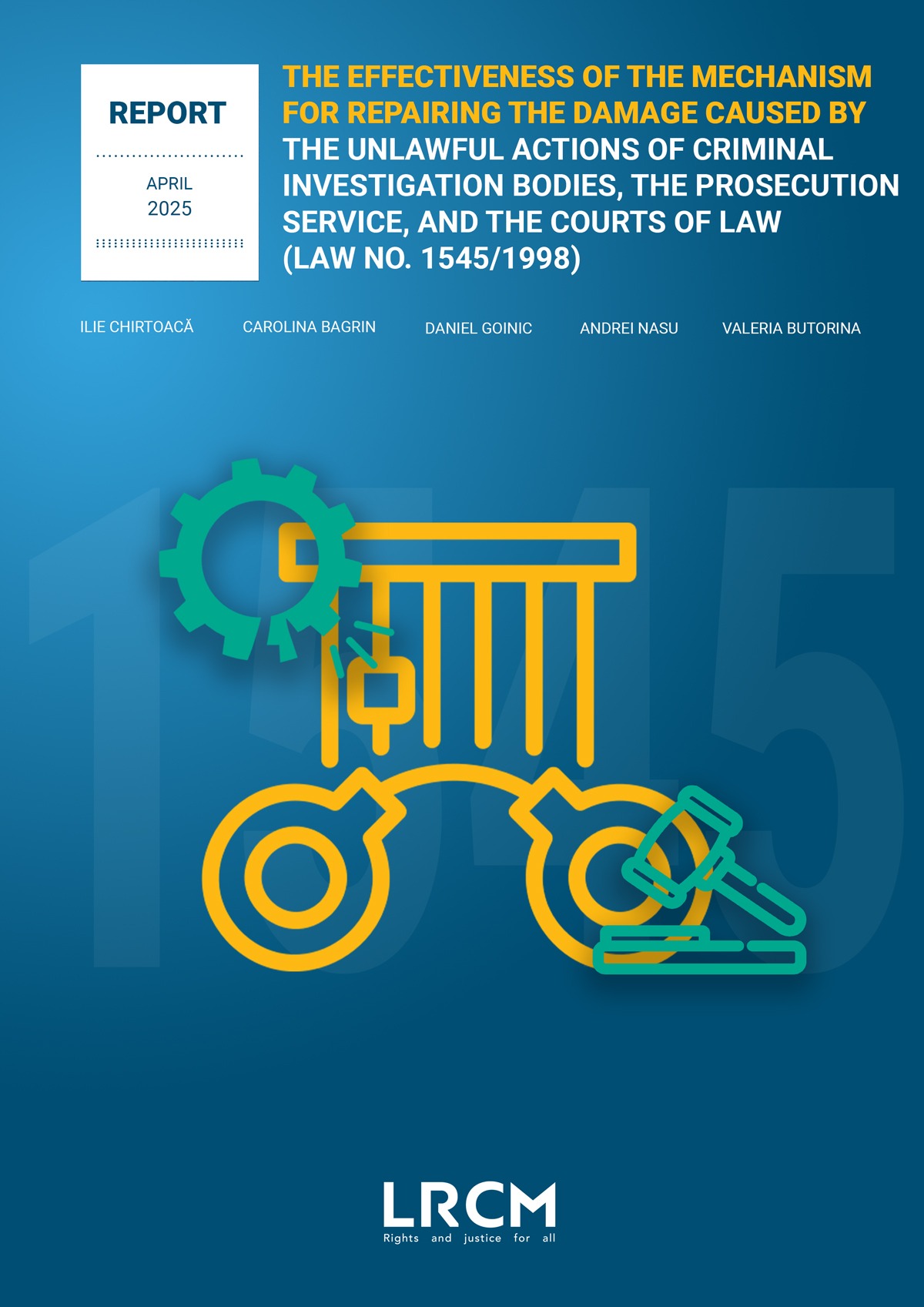The Legal Resources Centre from Moldova (LRCM) analysed the electoral programs of the presidential candidates to observe and assess whether human rights and the rule of law are a priority for them. The promises made to citizens in these areas were analysed from the perspective of clarity, compatibility with international standards and state policies, as well as feasibility from the perspective of the President’s powers.
One of the LRCM’s findings is that all candidates make commitments on human rights and the rule of law, a sign of a positive development in the country’s electoral culture. In terms of quantity, activities in these two areas account for about one third of all pledges.
However, the documents analysed reveal a worrying tendency of candidates to come to voters with unrealistic and populist goals. The electoral programs include activities or initiatives that will require legislative and administrative reforms to be implemented at the level of the Government and Parliament, including by amending the Constitution. Thus, some candidates are promising citizens actions whose realization is conditioned by factors outside the President’s powers.
“The promises of the presidential candidates in the 2024 elections can be framed in a fairly broad range. Achievable or populist, concrete or vague, aligned with national policies and international standards on human rights and the rule of law or far from such norms – this should be the filter through which citizens view and understand electoral programs before casting their vote,” stressed Ilie Chirtoacă, Executive Director of the LRCM.
The majority of the candidates’ proposals concerning human rights focus on social, economic and cultural aspects, while civil and political rights are less addressed. In the case of social protection commitments, the formulated measures would increase budgetary spending, without clear solutions on financial coverage being suggested. This makes it more likely that they will stay empty promises.
Another finding of the LRCM is that all of the programs analysed include measures and actions related to advancing the rule of law, although many of the proposed measures are presented in general terms and are predominantly declarative.
Problematic measures have been identified, such as banning “LGBT propaganda” in schools, promoting a restrictive definition of the family or proposals for excessive regulation and control over the work of civil society organizations. Such commitments are contrary to international principles and standards, and their eventual materialization will have negative effects on democracy, citizens’ rights and freedoms.
The detailed analysis and the main findings on the electoral programs are available online by accessing the analytical note “Presidential candidates’ electoral programs viewed through the lenses of the rule of law and human rights” (Romanian version). This publication was produced with the financial support of the Canada Fund for Local Initiatives (CFLI) in the framework of the project “Shielding Civil Society and Human Rights Defenders for a More Democratic Society”, implemented by the Legal Resources Centre from Moldova (LRCM). The content presented is the sole responsibility of the LRCM and does not necessarily reflect the views of the CFLI.
